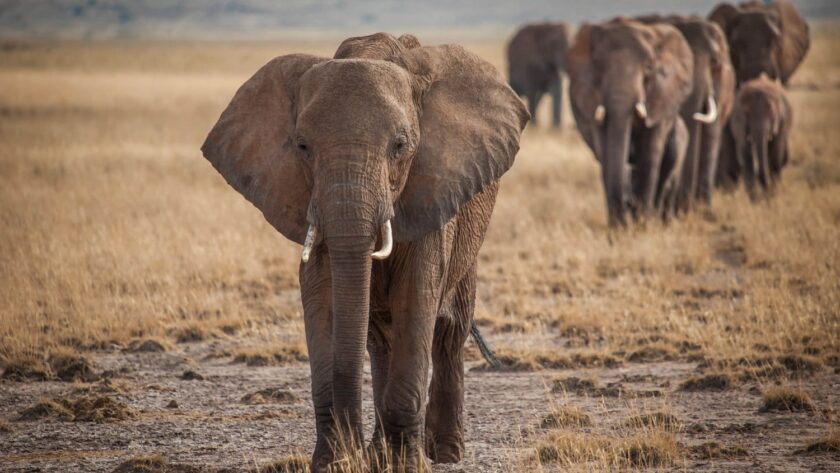
On March 9th, 18 elephants were put on a plane to begin their journey from Swaziland, Africa to three zoos across the United States. Their arrival comes after much controversy, with animal activist groups such as Friends of Animals working to block the importation.
Friends of Animals went as far as the take the issue to court, according to The Epoch Times, saying that “U.S. Fish and Wildlife Service “had a mandatory duty under the National Environmental Policy Act to fully evaluate and disclose whether the elephants, as a result of captivity, would suffer social, psychological, behavioral, and physical impacts for the rest of their lives.” However, U.S. District Judge John D. Bates ruled against the lawsuit.
The elephants will find their homes at African Grasslands Project at the Henry Doorly Zoo and Aquarium in Omaha, Nebraska, the Wilds of Africa exhibit at the Dallas Zoo in Texas, and the Zambezi River Valley at the Sedgwick County Zoo in Wichita, Kansas. The biggest of these multi-million dollar exhibits is approximately five acres — nearly nothing compared to the thousands of acres an elephant family in the wild may travel.
The largest zoo is ~5 acres, nothing compared to the thousands #elephants in the wild may #travel. Click To Tweet
Swaziland Elephants In Zoos: Good Or Bad?
On the flip side, there were a few potentially reasonable view points behind the decision to transport these elephants to the United States, population control being the first one. It is said that Swaziland is finding it necessary to import hay for the elephants from other countries in Africa due to the drought and, additionally, the “overpopulation” is resulting in the destruction of other species, most significantly the rhino.
Animal activist groups, however, are quick to point out that there are only 40 elephants living in the wild and Swaziland and several parks in neighboring African countries that would possibly have been able to accept the elephants, with far less trauma than transporting them across the world via plane.
Another concern that supports the idea of bringing the elephants to the United States is the rapid decline of elephants in the US zoo system. This is due to low breeding rates and compromised longevity, two problems that may be solved by introducing new blood into the herds.
If you ask an outraged Will from BornFree.org, there may also be some ulterior motives for putting these elephants in zoos in the USA. He says, “With my skeptical hat on, I suspect that another reason for the zoos’ desire to import elephants is not only to bolster their dysfunctional captive breeding programs but to populate new, expensive and yet meagre facilities.”
Do humans have the right to play #MotherNature when it comes to wild #elephants? Click To TweetWhat’s Your Opinion?
Like many issues, the importation of Swaziland elephants has multiple view points and no clear answer — is it better to transport the elephants in hopes of being able to protect them and breed more or is it better to let nature take it’s course and potentially lose elephants due to crowding? Should we be using our power to play Mother Nature, or letting the universe take its course?
Please share your opinions in the comments below.
Recommended:
How To Have A Responsible Elephant Encounter In Thailand [Blog Inspiration]
The Dark Side Of Selfies: No Photo Should Cost A Life [Blog Inspiration]
Wildlife Wars: My Fight to Save Africa’s Natural Treasures by Richard Leakey [Great Reads]
Latest posts by Sky Fisher (see all)
- 13 Ethical Clothing Companies That Give Back - Feb 6, 2022
- 5 Great Destinations For A Cultural Travel Experience - Dec 14, 2019
- 5 Memorable Tuscany Experiences - Sep 4, 2019
- An Inspiring Stay At San Juan del Sur’s First Eco Hostel - Feb 8, 2018
- How To Have A Tipsy Time In Oregon’s Willamette Valley - Sep 13, 2017





